Interview at “Die Welt” with Dr. Jørn Jørgensen: “90 percent of Chinese population are shortsighted”
Dr. Jørn Jørgensen wants his patients to feel comfortable. His eye clinics looks like a coffee lounge.
Source: Bertold Fabricius
To celebrate the history and 25th anniversary of EuroEyes, Dr. Jørn Jørgensen, founder and CEO of EuroEyes, was visited and interviewed by “Die Welt” at the Valentinskamp Clinic in Hamburg. Among other things, the topics were the expansion of the clinic in China, the further development of laser technology and whether Hamburg is a bicycle city or not.
You can find the whole interview in the original German here, enjoy reading it:
World Interview with Jørn Jørgensen – ” 90 percent of Chinese population are shortsighted”.
In the long ground floor window front to Valentinskamp, between Gänsemarkt and Laeiszhalle, there is a high-tech wheel; a few steps further a lounge with a large coffee counter comes into view. It’s not just a new coffee shop, as there are many of them in this area, but a clinic.
The “JJ Café” should offer patients the greatest possible comfort, as announced on the EuroEyes website. And service is important to the boss, he says. 25 years ago Dr. Jørn Jørgensen founded the first laser eye clinic in Hamburg, four months ago he and his team moved into the new premises in the city centre. In the quarter of a century since then, numerous patients have been treated at 15 locations. The doctors carry out 6,000 private operations and 2,500 operations on statutory health insurance patients at Hamburg location every year. For today, EuroEyes opened a total of 24 locations in Germany, Denmark and China and continues to grow.
In an interview, Jørgensen, founder and CEO of EuroEyes, talks about expansion plans, organ donation and how he would turn Hamburg into a bicycle city.
WELT: When you opened your first clinic in China five years ago, you said you learned a few words of Chinese. What about your language skills now?
Jørn Jørgensen: Chinese is really incredibly difficult! But since I also have to operate there and talk to the patients a little – ‘Does it hurt?’, ‘Look down, please’, ‘Don’t move’ – it helps if you can say a few sentences. In any case, I think that I can do it, but then you don’t really emphasize it in the end – and nobody understands you anymore. So it’s easier that we now have many Chinese patients in Hamburg.
WELT: How come?
Jørgensen: On the one hand there are quite a lot of Chinese living in Hamburg. Almost all Chinese use WeChat messenger, and many of our five practices in China seem to have learned about it. And some of them are now coming to our head office in Hamburg. Especially since the operations here are cheaper than in China.
WELT: Why are they more expensive there?
Jørgensen: Because everything is more expensive in China. The rent, equipment, consumables. And that’s not the Jungfernstieg location.
“We can’t compete with the price, but only with the quality.”
WELT: But it still seems you pay it off, because you have opened four practices in a row in China.
Jørgensen: Yes, we are currently is under construction in East Beijing. This city is so incredibly big – 24 million inhabitants, and one million more every year. And our practice is going well in West Beijing. It’s the land of growth. We can’t compete with the price, but only with the quality.
WELT: 25 years ago you founded EuroEyes. What are the next steps, which country will come after China?
Jørgensen: Of course you could go to India. But China is so good for us that we stay there for now. It is developed, growing – and has 90 percent shortsighted people. And all eye diseases come with nearsightedness. There are retinal detachments, cataracts, glaucoma. This is a huge market for us. However, we will continue to be active in Tibet with a charity campaign. We have been operating on blind patients once a year for twelve years.
WELT: What kind of operations do you perform in general?
Jørgensen: In China and also in Germany we mainly deal with presbyopia. People are getting older and a 60-year-old today feels like a 40-year-old. He wants to be young, sporty, active – and live without varifocals. And that’s where we come in. Life is short!
WELT: But this is a privately paid and is not covered by health insurance.
Jørgensen: That’s true. However, a treatment with us is a sustainable investment in the eyes. That’s why we offer our patients individual financing options.
WELT: A big debate is going on about organ donation. Do you use donor organs?
Jørgensen: Yes, we transplant corneas.
WELT: What is your position on the active right of objection in organ donation?
Jørgensen: I think that everyone should automatically be an organ donor and that there should not even be a right of objection. When I was an assistant doctor, it was my turn every Monday to get eyes for corneal transplants from the pathology department from the patients who had died that day. That was normal, there was no other regulation yet.
“Dry eyes is a huge, still quite undetected problem”
WELT: And what’s going at the technical development in the field of ophthalmology?
Jørgensen: Certainly, the development is going on towards the further development of laser technology. We are the only ones here in Northern Germany who have a so-called ReLEx smile laser for operating. You don’t make the cut with the knife, but with the laser beam, which is controlled by me via a computer and a joystick. That will never be completely replaced, so robots won’t operate at some point. I also have the responsibility. But working with the laser is very precise. A second field, which is currently on the rise, is the treatment of dry eyes. In the lower eyelid you have glands that produce a fat film for the eyes that keeps the fluid in the eye. If the fat content is missing, the liquid evaporates and you get dry eyes. So this has nothing to do with the tear gland above the eyes. This is a huge, still quite undetected problem. As a result, people can no longer see well. And it doesn’t help to take drops.
WELT: What causes it?
Jørgensen: The constipation comes from cosmetics, smoking, dehydration, aging. In the past, people were advised to massage their lower eyelids to open the canals. Now there is a completely new device that warms the eyelids and massages them at the same time. While a liquid like olive oil comes from the glands of healthy people, the matterof those who have had their canals blocked looks like toothpaste. This has to be reopened. You certainly don’t get the Nobel Prize for that. But it is a big problem.
WELT: What is the warm climate like for our eyes?
Jørgensen: Super! Because we have a high humidity. Also the contact lens wearers are all happy.
WELT: And about sunglasses: Yes or no?
Jørgensen: I advise it. What I don’t find necessary are glasses with a blue light filter. These are yellowish glasses that look a bit like secret agents.
WELT: Your new clinic at Valentinskamp has also become stylish. It looks more like an airport lounge than a doctor’s office.
Jørgensen: Do you think so? That makes me happy! I hate these waiting rooms, where the chairs are lined up along the walls and in the middle there is a table with magazines. I always think about what I would like to have myself. And I would like to get an appointment in a good, professional atmosphere.
“SERVICE, SERVICE, SERVICE. THAT IS IMPORTANT”
WELT: And for someone who takes away the fear of the operation, because operations on the eye are not exactly an easy idea for many people.
Jørgensen: That’s true. To become blind must be an incredible catastrophe. And trusting someone’s eyesight means great trust. Patients expect us to operate on them well. We perform around 25,000 eye surgeries worldwide every year. But our patients also measure us by the friendliness of our reception staff. Service, service, service. That is important.
WELT: Let’s get briefly to Cyclassics, where you have been the main sponsor since 2016.
Jørgensen: Yes, soon it will be time again! I’ve been riding my own racing bike since I was little.
WELT: It’s nice and flat in many parts of Denmark.
Jørgensen: Yes, but you always have headwind! (laughs)
WELT: Is it better in Hamburg?
Jørgensen: No, Hamburg is not a bicycle city. Cars in Germany have a strong standing. We have now invited some employees of the bicycle ministry from Copenhagen to Hamburg to report on how they turned their city into a bicycle city. It’s nonsense that Hamburg’s city centre with its Jungfernstieg, Gänsemarkt and New Wall is open to cars! It would be much better for people and retailers if the streets could be used for strolling and gastronomy. Politicians would simply have to say: We are doing this now – and well.
About EuroEyes:
EuroEyes is the largest clinic group in Germany for laser eye surgery and lens surgery. Since 1993, numerous eye treatments have been performed by EuroEyes surgeons. The most innovative methods are used to correct vision disorders such as short-sightedness, farsightedness, astigmatism and presbyopia.
If you would like to find out more about these and other treatment methods, please feel free to send us your contact form.






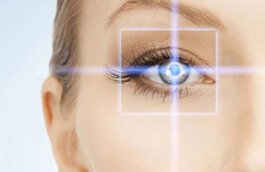

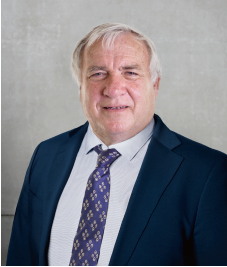

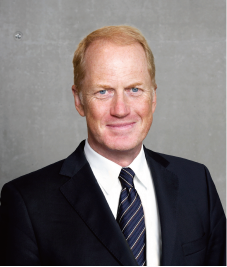

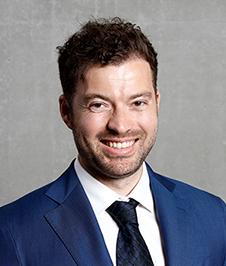
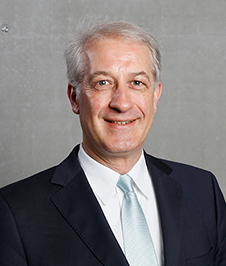
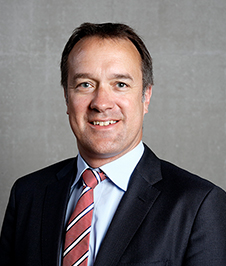
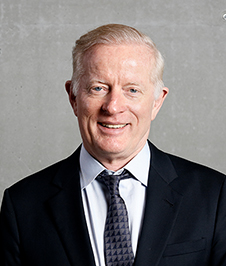


Join our Newsletter